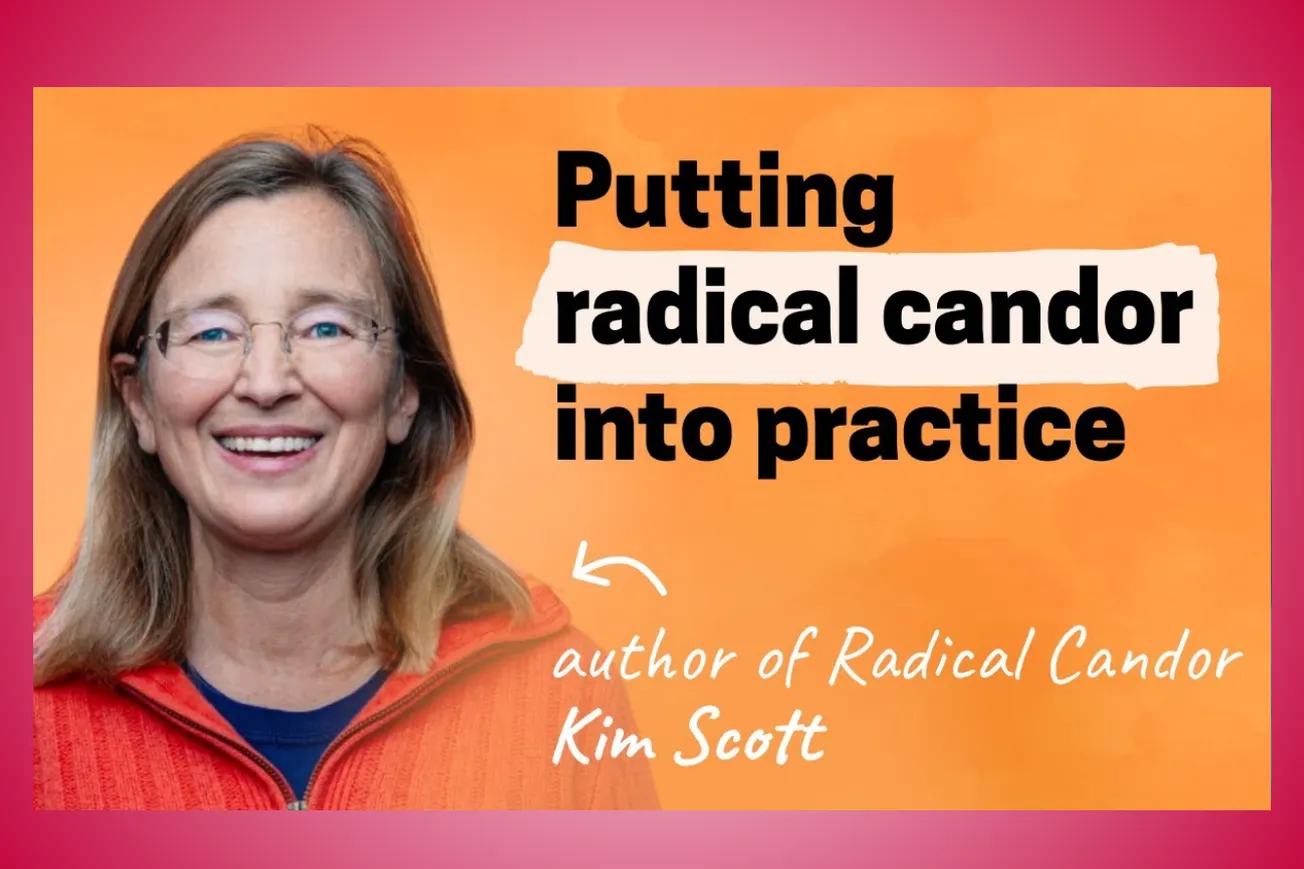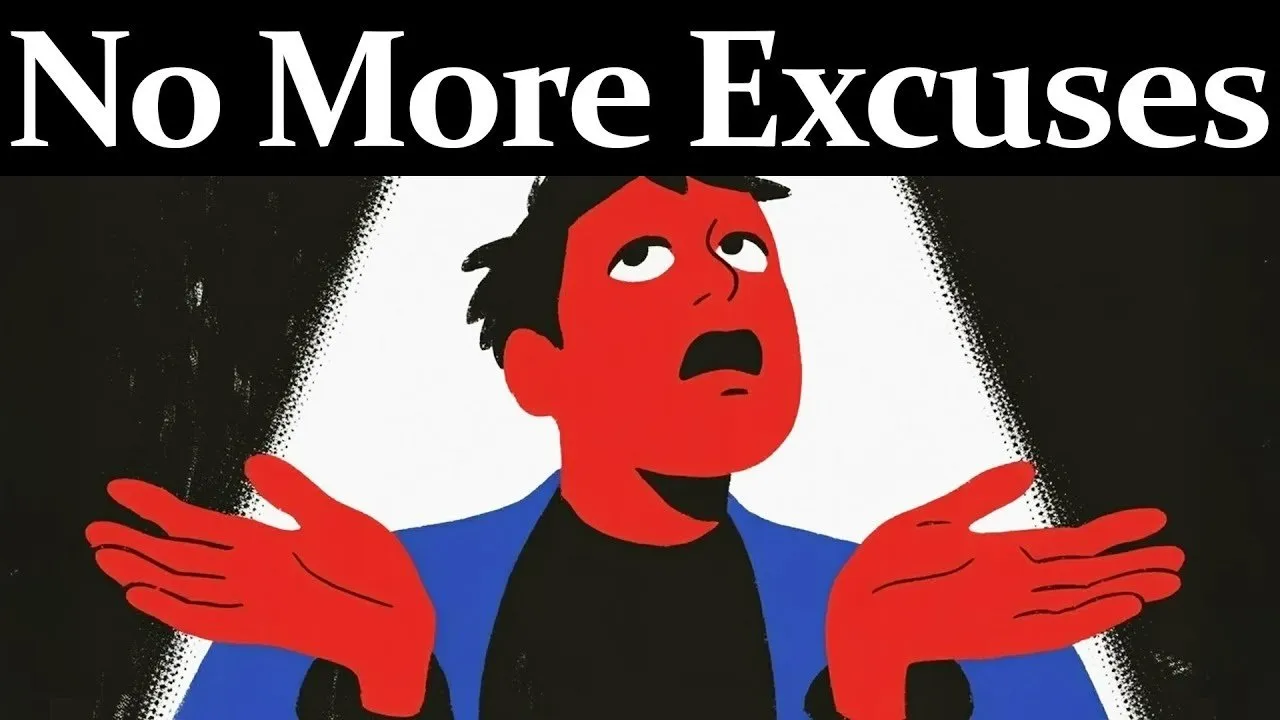Table of Contents
Stop wasting your breath on ineffective feedback—learn the radical candor framework that transforms workplace relationships and drives real performance improvements.
Most leaders fail at feedback because they either hurt people's feelings or avoid difficult conversations entirely, but radical candor offers a proven path to caring personally while challenging directly.
Key Takeaways
- Radical candor combines caring personally and challenging directly, avoiding ruinous empathy (caring without challenging) and obnoxious aggression (challenging without caring)
- Most workplace feedback failures occur in the ruinous empathy quadrant—being nice but avoiding necessary difficult conversations
- Effective feedback requires being humble, helpful, immediate, and specific using the CORE framework: Context, Observation, Result, Next Step
- Soliciting feedback first creates psychological safety and demonstrates that you value honest communication from your team
- Regular career conversations showing genuine care for employees' futures enable more effective challenging when performance issues arise
- The false choice between being successful or being kind undermines leadership—the best leaders excel at both caring and challenging
Timeline Overview
- 00:00–06:46 — Introduction to Radical Candor Framework: Kim Scott explains the 2x2 matrix of caring personally plus challenging directly, distinguishing radical candor from obnoxious aggression, ruinous empathy, and manipulative insincerity
- 06:46–14:16 — The Power of Direct Feedback: Kim's transformative story at Google when her boss addressed her excessive use of "um," demonstrating how radical candor builds stronger relationships and drives better performance
- 14:16–27:50 — Tactical Communication Framework: The HIPPIE CORE methodology for delivering effective feedback—being humble, immediate, in-person, with specific context, observation, result, and next steps
- 27:50–33:31 — The Cost of Ruinous Empathy: The devastating "Bob story" showing how avoiding difficult conversations for 10 months led to firing an employee and losing top performers who were frustrated by poor standards
- 33:31–50:48 — Mastering Feedback Solicitation: Step-by-step guide to asking for criticism effectively, embracing discomfort, listening to understand, and rewarding candor to create psychological safety
- 50:48–57:42 — Implementation and Time Management: Practical advice on frequency, scheduling feedback into one-on-ones, and why two-minute conversations prevent hour-long problems later
- 57:42–1:07:39 — Debunking Leadership Myths: Why successful leaders like Steve Jobs succeeded because of caring relationships, not despite them, and the false dichotomy between being competent versus kind
- 1:07:39–1:15:51 — Beyond Individual Skills: Addressing systemic biases that make radical candor harder for certain groups, leading to Kim's new book Radical Respect as a prequel framework
The Foundation: Understanding the Four Quadrants
Radical candor emerges when you simultaneously care personally and challenge directly. This creates a 2x2 framework where most leadership failures fall into predictable patterns.
When you challenge directly but forget to show care, you land in obnoxious aggression. People shut down because they feel attacked rather than supported. The feedback becomes ineffective because the recipient enters fight-or-flight mode and literally cannot process what you're saying.
The opposite extreme—caring personally while avoiding direct challenges—creates ruinous empathy. This feels safer in the moment but devastates long-term relationships and performance. You think you're being kind, but you're actually denying people the information they need to succeed.
Manipulative insincerity occupies the worst quadrant: neither caring nor challenging. This political maneuvering destroys trust and creates toxic workplace dynamics.
Most people make 90% of their feedback mistakes in ruinous empathy territory. We want to be nice, so we avoid saying things that might hurt feelings, even when those conversations would ultimately help someone's career.
The Real Cost of Avoiding Difficult Conversations
Kim's experience with "Bob" illustrates ruinous empathy's devastating impact. Bob was likable, creative, and brought levity to the office with his quirky candy-dispensing habit. But his work was consistently poor—riddled with sloppy mistakes despite his intelligence.
For ten months, Kim gave Bob feedback like "this is such a great start, maybe you can make it just a little bit better." She told herself she was being kind, but manipulative insincerity also played a role—she worried that directly addressing Bob's performance might make her look bad if he became upset.
The inevitable outcome: Kim had to fire Bob. His final words were devastating: "Why didn't you tell me? I thought you all cared about me." By trying to spare his feelings, she had actually set him up for a much more painful failure.
Worse, the entire team suffered. High performers were ready to quit because they couldn't do their best work while constantly fixing Bob's mistakes. Ruinous empathy doesn't just hurt the underperformer—it drives away your best people.
The HIPPIE CORE Framework for Effective Feedback
Successful feedback conversations follow specific principles captured in the HIPPIE CORE acronym:
HIPPIE guidelines establish the right conditions:
- Humble: Approach feedback as dialogue, not truth-telling. You might be wrong.
- Immediate: Address issues right away rather than waiting for "better moments"
- In-person (or synchronous): Phone calls often work better than video for sensitive conversations
- Public praise, Private criticism: Protect dignity while recognizing achievements
- Personal: Focus on behaviors and results, never personality traits
- Empathetic: Show you care while maintaining direct communication
CORE provides the content structure:
- Context: Set the scene ("In yesterday's meeting...")
- Observation: Describe specific behaviors ("When you said 'um' every third word...")
- Result: Explain the impact ("It made you sound unsure of your expertise...")
- next stEp: Suggest concrete actions ("I recommend working with this speech coach...")
This framework works equally well for praise and criticism. Recognition becomes more effective when you specify exactly what someone did well and why it mattered.
Mastering the Art of Soliciting Feedback
The most crucial radical candor skill involves getting feedback rather than giving it. When you start by soliciting criticism, you create psychological safety that makes all future feedback conversations more effective.
Never ask "Do you have any feedback for me?" The answer will always be "everything's fine." Instead, try questions like:
- "What could I do or stop doing that would make it easier to work with me?"
- "What's one thing I could have done this week to better support your work?"
- "Tell me why I'm wrong" (for more direct communicators)
The question must sound authentic to you. If you mimic someone else's phrasing, people won't believe you actually want the answer.
After asking, embrace the discomfort. Close your mouth and count to six—most people can't tolerate that much silence and will share something meaningful. Listen with intent to understand, not to respond. Your defensive reactions are normal and human.
Most importantly, reward the candor. If you agree with feedback, fix the problem loudly so everyone sees you take input seriously. If you disagree, find the 5-10% you can accept, acknowledge it, then respectfully explain your different perspective. Unspoken disagreement damages relationships more than honest differences of opinion.
Creating Conditions for Difficult Conversations
People pleasers struggle most with radical candor because challenging others feels inherently unkind. The solution involves reframing kindness itself.
True kindness means caring more about someone's long-term success than your short-term comfort. When you avoid difficult conversations to spare feelings, you're prioritizing your own discomfort over their professional development.
Regular career conversations create the foundation for effective challenging. Spend time understanding what motivates each team member, their professional dreams, and their skill development needs. When someone knows you genuinely care about their future, they're more likely to receive difficult feedback as support rather than criticism.
This investment in relationships enables more direct communication when performance issues arise. Context matters enormously—the same words that feel supportive in a caring relationship might devastate someone who doubts your investment in their success.
Beyond Individual Skills: Cultural Transformation
Radical candor works best in environments that reward honest communication, but you can't wait for perfect cultural conditions. Start by modeling the behavior you want to see.
When you consistently solicit feedback and respond thoughtfully, others notice. When you give specific, caring feedback that helps people improve, they start trusting your intentions. When you have honest disagreements that strengthen rather than damage working relationships, you demonstrate that conflict can be productive.
For leaders dealing with consistently aggressive colleagues, focus on showing them the impact of their approach. Most obnoxious aggressors care about results—they just don't realize their method undermines their effectiveness. When people feel attacked, they literally cannot process your message.
The goal isn't choosing between competence and kindness. That's a false dichotomy that limits leadership potential. The most successful leaders excel at both caring and challenging, creating environments where people do their best work while feeling genuinely supported.
Common Questions
Q: How do I practice radical candor in a culture that avoids direct feedback?
A: Start by soliciting feedback yourself, respond well to input, and gradually model more direct communication as relationships strengthen.
Q: What if someone gets defensive when I give feedback?
A: Move up on the "care personally" axis—acknowledge their feelings while maintaining that the issue matters and needs addressing.
Q: How often should I ask for feedback from my team?
A: Weekly with direct reports during one-on-ones, plus regular check-ins with cross-functional peers and your manager.
Q: Is radical candor appropriate for all personality types?
A:The principles remain consistent, but adjust your delivery style based on individual communication preferences and relationship context.
Q: How do I know if I'm being radically candid versus obnoxiously aggressive?
A: Gauge the listener's reaction—if they shut down or become defensive, you may need to demonstrate more care before continuing to challenge.
The Future of Feedback: Radical Respect
Kim's upcoming book, Radical Respect, addresses radical candor's limitations in environments affected by bias, prejudice, and systemic inequities. When different groups face varying consequences for the same communication styles, additional frameworks become necessary for creating truly inclusive feedback cultures.
The core insight remains powerful: you don't have to choose between being successful and being kind. The best leaders master both dimensions, creating workplaces where people thrive personally and professionally. This requires ongoing practice, self-awareness, and commitment to continuous improvement in how we communicate with and care for others.
Conclusion
Radical candor transforms workplace relationships by rejecting the false choice between caring and challenging. Kim Scott's framework reveals that most feedback failures stem from ruinous empathy—avoiding difficult conversations to spare feelings while actually denying people the growth they need. The solution requires deliberate practice: starting with soliciting feedback to create psychological safety, then delivering specific, caring challenges using structured approaches like HIPPIE CORE. Success depends on understanding that true kindness means prioritizing someone's long-term development over short-term comfort, building the trust that makes honest communication possible and productive.
Practical Implications
• Schedule weekly 5-minute feedback sessions at the end of every one-on-one with direct reports
• Develop your authentic go-to question for soliciting criticism and practice it until it sounds natural
• Replace vague feedback ("good job," "needs improvement") with specific CORE structure: context, observation, result, next step
• Invest in career conversations to understand what motivates each team member before delivering difficult feedback • Address performance issues immediately rather than waiting for formal reviews or "better moments"
• Reward feedback givers loudly when they take risks to share difficult truths with you
• Practice disagreeing respectfully by finding 5-10% you can agree with before explaining your different perspective • Stop saving feedback for annual reviews—make it a continuous part of daily relationship maintenance
Standout Insights
"It's not mean, it's clear" — This phrase, shared by a stranger on a Manhattan street, captures the essence of radical candor. What feels harsh in the moment often provides the clarity people desperately need but are too polite to request directly.
"Why didn't you tell me? I thought you all cared about me" — Bob's final words to Kim reveal the devastating irony of ruinous empathy. By trying to protect his feelings, she had actually demonstrated the opposite of care, denying him the feedback that could have saved his job and career.
"When you say 'um' every third word, it makes you sound stupid" — Kim's boss knew her well enough to use these specific words because she cared personally. The same phrase would be obnoxious aggression from someone else, proving that radical candor gets measured not at the speaker's mouth but at the listener's ear.
Transform your leadership by mastering one simple question this week—then schedule five minutes to ask it of someone who matters to your success.





